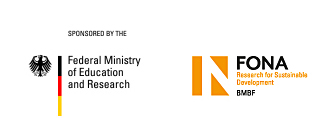SP 9 - Social and institutional drivers
Subproject 9 objectives are:
Assessment of social and institutional drivers that led to the existing land use. Consequently, institutional and social factors hampering or facilitating change towards more sustainable land use practices including the uptake of key-technologies and the acceptance of policy measures to reduce soil degradation and desertification are investigated.
A socio-geographic study with participation of local stakeholders will particularly focus on the innovation capability of the rural society facilitating both their technology uptake and their willingness to accept and engage in new coordination mechanisms for dissemination of new sustainable land use practices.
An institutional project will systematically study past changes of formal and informal property rights, as well as current property rights in a nested hierarchical system. Governance systems on land management ranging from market coordination of commanding and controlling options to make these property rights effective will be analysed.
An institutional analysis (with the PICA Method) will assess crucial institutional factors which must be taken into account when aiming at cost-efficient and effective policy implementation.
In a participatory approach, various stakeholder groups will prioritize measure alternatives. According to the methods of multiple criteria decision analysis, they will build their own criteria, first. Applicable solutions for choices among controversial options and governance structures will be elaborated.
Based on insights of willingness and barriers to innovations, SP9 will compose a handbook in Russian language and contribute to the implementation of “regional learning platforms” in SP10.









